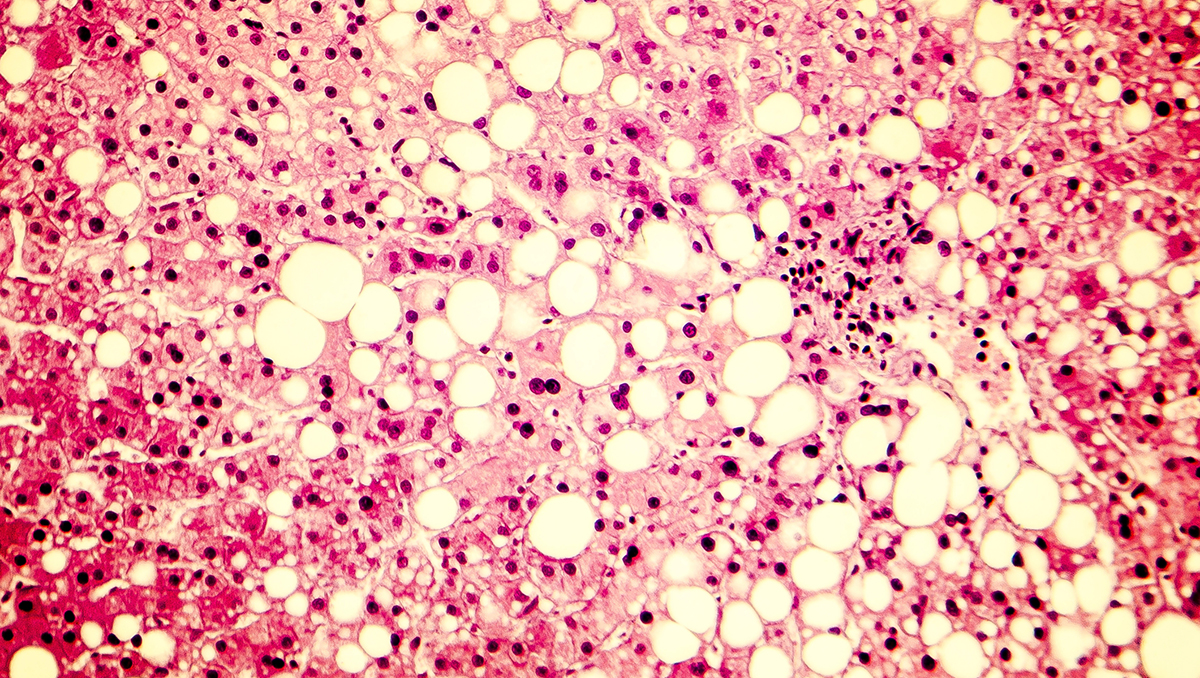Boehringer’s survodutide shows monster MASH potential

Boehringer Ingelheim’s weight-loss drug candidate survodutide could also be effective for liver disease metabolic dysfunction-associated steatohepatitis (MASH), if the results of a mid-stage trial are backed up in larger studies.
The dual agonist of GLP-1 and glucagon, developed in partnership with Zealand Pharma, achieved a biopsy-assessed improvement in MASH, without worsening of fibrosis (scarring), in up to 83% of patients after 48 weeks, compared to 18% of a matched placebo group.
The 295-subject study also met all secondary endpoints, including a statistically significant improvement in liver fibrosis, said Boehringer in a statement.
MASH, previously known as non-alcoholic steatohepatitis (NASH) and renamed towards the end of last year, is the most severe form of metabolic dysfunction-associated steatotic liver disease (MASLD), which in turn has been rebranded from non-alcoholic fatty liver disease (NAFLD).
According to Boehringer, survodutide is the first drug to show this level of benefit in a mid-stage MASH trial and has the potential to become a best-in-class treatment for the progressive disease, which affects more than 115 million people worldwide and results in inflammation and fibrosis that can lead to liver cancer, liver transplant, and death.
If survodutide’s efficacy in MASH is confirmed in pivotal trials, it could add another massive indication to the label for the drug, which is already in phase 3 testing in obesity and hoping to join a market that is shaping up to be worth tens of billions of dollars per year.
Other GLP-1-targeting drugs for obesity and diabetes are also being explored for their potential in MASH – including Novo Nordisk’s Ozempic/Wegovy (semaglutide) and Eli Lilly’s Mounjaro/Zepbound (tirzepatide), which also targets GIP – but Boehringer reckons targeting glucagon could give it an edge.
The company maintains that stimulating glucagon increases energy expenditure in the body and has a direct impact in the liver, which potentially contributes to the improvement of fibrosis and could be a “true differentiator” for survodutide, according to its head of pharma Carinne Brouillon.
Across all indications in cardiovascular, renal, and metabolic diseases there are around 1 billion people worldwide who could benefit from the treatment, she said.
This data positions "survodutide as a potential leading treatment for a population with great unmet medical needs, and will bring hope to people living with MASH and with fibrosis,” commented Dr Arun Sanyal of Virginia Commonwealth University School of Medicine in the US, who was the principal investigator in the study.
“I am looking forward to sharing further detail on key secondary endpoints, including the percentage of adults who saw an improvement in fibrosis, at a congress in the first half of this year,” he added.
Survodutide has already won fast-track status for MASH with fibrosis from the FDA, as well as a PRIME designation in the EU, which both could speed its journey to market.
Earlier this year, Boehringer also formed an alliance worth up to $2 billion with China’s Suzhou Ribo Life Science and its Swedish unit Ribocure to develop treatments for MASH based on RNA drugs.
Shares in Denmark-based Zealand Pharma were up nearly a third this morning on the strength of the top-line result.












